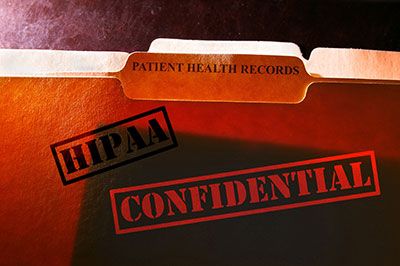Before heading to begin that freshman year of college, young adults approaching the age of majority - 18 in most states - are encouraged to get three important documents in place. The first is a power of attorney for health care in which a proxy, usually a parent, is appointed to make treatment decisions for a young adult in the event of incapacity. The second is a HIPAA release form that allows access to medical information and the ability to discuss treatment plans with caregivers, regardless of incapacity. The third is a power of attorney for financial and legal matters. When children reach the age of majority, the ability of parents to make health care and financial decisions on their behalf is significantly limited.
When young adults prepare to attend college, they discover many decisions need to be made: where to attend school; where to live; what subjects to study; and what trendy fashions must hang in their closets.
Parents also have numerous considerations. Among them: how to pay for all of this; how to utilize the new empty bedroom; and, more importantly, what happens when Junior turns the age of majority.
For estate planning purposes, the issue of children making the legal transition into adulthood looms large. In most states, 18 is the age of majority (it's 19 in Alabama and Nebraska and 21 in Mississippi). The age of majority is a milestone that legally divides childhood from adulthood. It's also a measurement of time that marks the end of authority by parents to exert control over important decisions made on a young adult's behalf.

As parents relinquish control, they suddenly lack carte blanche in matters they've dealt with for the past 18 years or so - making decisions about health care and finances for their children. Once a person is the age of majority, laws require that doctors, hospitals, banks, universities and the like no longer treat them like children. Suddenly, unfettered access to medical records and information about treatment options is no longer the purview of parents because of the federal Health Insurance Portability and Accountability Act, or HIPAA.
This is a big deal, for example, if your child is away at college and has a medical emergency and becomes incapacitated. Parents want immediate answers about the health of their children. They want to provide input to health care providers and expect candid answers from doctors and nurses.
The same is true when it comes to finances. Many parents who are paying the bills - and tuition - want access to bank accounts in their children's names to obtain balances, track spending and make sure the checks won't bounce. In the event of an emergency, parents want the ability to manage their children's accounts and pay the rent, car loan, taxes and credit cards to ensure their finances are in order. They also may need access to digital assets - such as online banking and social media and email accounts.
If continued control is what parents desire, they'll need their adult-age children to sign power-of-attorney documents that provide authority over health care and financial and legal matters. The assignment of powers of attorney for health care and finances are common “living will” elements of estate plans for older folks, but they have important implications for young adults and their parents.
Consider what would happen if a young adult away at college has an accident and becomes incapacitated. Without a medical power of attorney, also referred to as a health care proxy or an advance health care directive, a parent might be forced to seek a court-appointed guardianship - which can be time consuming and expensive - to make decisions on a child's behalf. Medical professionals in a far-away hospital may cite privacy concerns and refuse to discuss treatment options without proper authorization from their patient.
Similarly, parents who attempt to deal with financial and legal matters involving children who have reached adulthood may face roadblocks unless a power of attorney for financial and legal matters is executed. Otherwise, parents may find themselves seeking a court-appointed conservatorship - another costly and time-consuming endeavor.

Once signed and notarized, power-of-attorney designations can be in force immediately and “durable,” meaning they remain in effect after the principal becomes incapacitated. A “springing” power of attorney that takes effect only upon specific circumstances - incapacity, for example - is another option that maintains some independence for the young adult but allows the parents to assume control in case of an emergency. That independence can be important to a student who is concerned about overprotective parents having easy access to their grades and other personal data. The Family Education Rights and Privacy Act (FERPA) limits access to educational records of students age 18 and older unless they provide written consent. This may be an issue, for example, if a parent would need to contact professors regarding their child's situation. A FERPA waiver can be included as part of a durable power-of-attorney document.
Another key document - a HIPAA medical release signed by the young adult - is recommended to supplement the powers of the health proxy and give access to medical information to others, regardless of incapacity. The release, which can be signed ahead of an actual emergency, designates who can be privy to medical records and receive information about health care. The release can be worded to protect certain information the young adult may want to keep private - such as medical information about drug use, mental health, sexually transmitted diseases and other sensitive subjects.
The National Law Review lists some important considerations regarding the three critical documents.
- The documents should be updated every few years. “This is especially critical for powers of attorney. The institutions where you would be most likely to use these documents - such as hospitals and banks - might refuse to honor them if they perceive them to be outdated,” according to the NLR.
- The adult child has the right to revoke or amend the documents at any time. That would include adding any limitations on the authorities granted by the documents.
- When attending an out-of-state institution, young adults should execute documents in both their home state as well as the state where the school is located.
Discussions about potential family emergencies aren't as popular as chats about dorm room decorations, but they are necessary to prepare for life's unexpected events in which parents still play a pivotal role, experts say.
There are numerous options and scenarios to consider when developing an estate plan that protects your legacy and achieves your objectives, and important decisions should be made with the advice of qualified lawyers and financial experts. Membership with Legacy Assurance Plan provides members with valuable resources and guidance to develop comprehensive estate plans that take life's contingencies into consideration and leave a positive impact for generations to come. Legacy Assurance Plan members also receive peace of mind that a team of trusted, experienced professionals will assist them in developing legal, financial and tax strategies that will meet their needs today and for years to come through periodic reviews.


